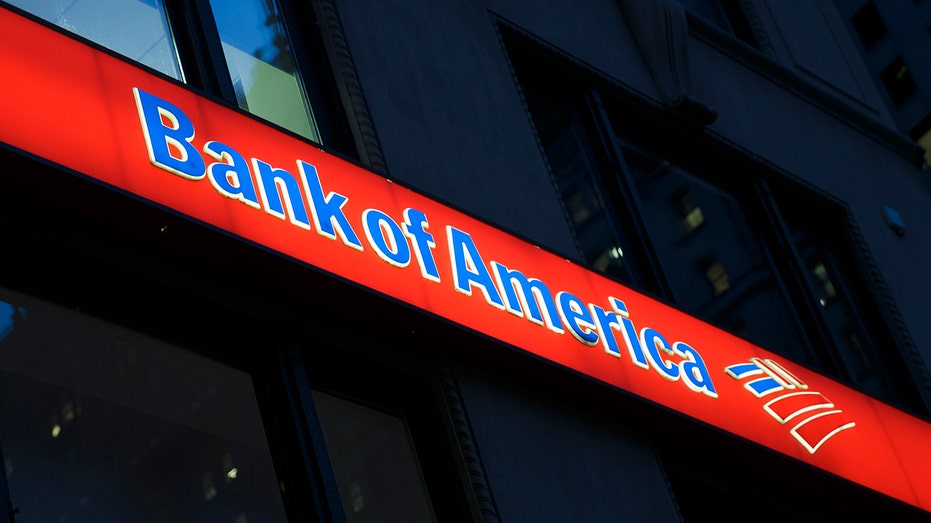Inflation is 'starting to bite': Bank of America executive
June CPI release puts inflation at fresh 40-year high
Bank of America executive explains impact of 'inflation tax'
Vice Chair and Chief Investment Officer of the Pension and Benefits Plan at Bank of America Keith Banks discusses how long inflation will remain an 'issue.'
Keith Banks, the vice chair and chief investment officer of the Pension and Benefits Plan at Bank of America, argued on Wednesday that the behavior of the American consumer is changing due to inflation sitting at 40-year highs.
He went on to stress that the "inflation tax is real" and that the price hikes are "starting to bite," noting that the change in behavior is starting to be reflected in consumer spending data.
Speaking on "Mornings with Maria" on Wednesday, he said that "BofA Global Research is now looking for negative growth each quarter for the rest of this year, as well as the first quarter of next year."
He then pointed to aggregate credit and debit card data at Bank of America, which is tens of millions of customers.
INFLATION SURGES 9.1% IN JUNE, ACCELERATING MORE THAN EXPECTED TO NEW 40-YEAR HIGH
"Even though in June aggregate spending was up 11%, which on the surface you say, ‘That’s a strong number,’ but when you look at it on a per household basis, which is probably more reflective of true consumer activity, it’s only up 3.3%," Banks said.
"That actually would be below inflation numbers in June, which means real spending is negative."
"And even more interesting is, if you strip out spending on gasoline and food, spending is actually down 1% for the lower income cohort and even for the higher income cohort, spending is clearly in a downtrend," he continued.
Inflation numbers hotter than expected
FOX Business' Cheryl Casone reports on June's Consumer Price Index released Wednesday, which revealed inflation now sits at a fresh 40-year high.
Banks provided the insight minutes before it was revealed that inflation accelerated more than expected to a new four-decade high in June as the price of everyday necessities remains painfully high, exacerbating a financial strain for millions of Americans.
The Labor Department said Wednesday that the consumer price index, a broad measure of the price for everyday goods, including gasoline, groceries and rents, rose 9.1% in June from a year ago. Prices jumped 1.3% in the one-month period from May. Those figures were both far higher than the 8.8% headline figure and 1% monthly gain forecast by Refinitiv economists.
The data marks the fastest pace of Inflation since December 1981.
AVERAGE AMERICAN WORKER HAS LOST $3,400 IN ANNUAL WAGES UNDER BIDEN THANKS TO INFLATION
Price increases were extensive, suggesting that inflation may not be near its peak: Energy prices rose 7.5% in June from the previous month, and are up 41.6% from last year. Gasoline, on average, costs 59.9% more than it did one year ago and 11.2% more than it did in May. The food index, meanwhile, climbed 1% in June, as consumers paid more for items like cereal, chicken, milk and fresh vegetables.
Although American workers have seen strong wage gains in recent months, inflation has largely eroded those increases: Real average hourly earnings decreased 1% in June from the previous month when accounting for higher consumer prices, according to the Labor Department. On an annual basis, real earnings actually dropped 3.6% in June.

Vice Chair and Chief Investment Officer of the Pension and Benefits Plan at Bank of America Keith Banks discusses the economic landscape amid soaring inflation. (Thomas Trutschel/Photothek via Getty Images / Getty Images)
"Because of all the stimulus, the consumer actually was flush with cash," Banks said on Wednesday, noting that, currently, savings in both checking and savings accounts "are still above 2019 levels."
"They [consumers] have been drawing it down; we expect that will probably continue, unless they decide that they are going to just pull back and leave that money sitting there… that is going to be one of the big decisions that need to be made and will impact overall growth," he continued.
Banks also provided insight on Wednesday as to how long inflation will continue to be an "issue" and what the Federal Reserve can do to combat it.
"The Fed has got to create demand destruction," he argued.
Inflation tax is 'real': Bank of America executive
Vice chair and chief investment officer of the Pension and Benefits Plan at Bank of America, Keith Banks, argues inflation is 'starting to bite' and explains what actions he believes the Federal Reserve should take to alleviate the price hikes.
"As a result of all the stimulus that we saw, and appropriately so because of the pandemic, demand grew at 10%," Banks went on to note. "Over the prior decade the average demand growth was 4%; so you got to break the back of demand because supply is not going to come back fast enough to really solve the problem."
He explained that inflation will continue to persist until demand destruction occurs to a sufficient degree, predicting, "we think that probably happens by the middle of next year at the earliest."
GET FOX BUSINESS ON THE GO BY CLICKING HERE
Last month, central bank policymakers approved a 75 basis-point rate hike for the first time since 1994 as they race to catch up with runaway inflation.
Another hike of that magnitude could be on the table this month amid signs of stubbornly high inflation, Chairman Jerome Powell told reporters after the meeting, prompting investors to reassess the economic outlook.
FOX Business’ Megan Henney contributed to this report.























